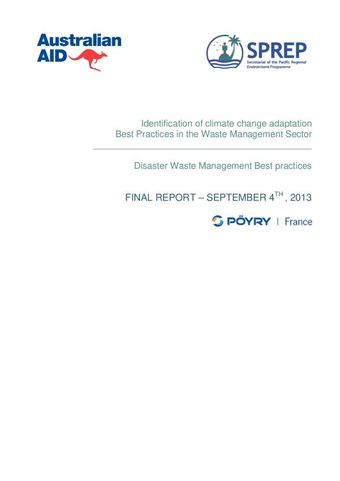Connect with The University of Auckland Library
Contact this content partner to get more information about this item.
Climate Change-Related Relocation in Fiji – From Policy to Practice
- Description:
- Background. Climate change is increasingly recognised as a key factor in decisions to migrate, with more than 24 million people displaced annually between 2008 and 2018 due to climate-related hazards, within and across borders, according to the Internal Displacement Monitoring Centre (2019). Planned relocation in response to climate change has become a hotly debated issue in small island countr...
- Display date:
- 2021-8-17
- Location:
- Fiji
- Format:
- Conference item
- Collections:
- ResearchSpace@Auckland
- Content partner:
- The University of Auckland Library
- Availability:
- Not specified
-
Copyright status: ShareFind out more about what you are able to do with this itemMore informationThe University of Auckland Library has this to say about the rights status of this item:
Items in ResearchSpace are protected by copyright, with all rights reserved, unless otherwise indicated. Previously published items are made available in accordance with the copyright policy of the publisher.
What can I do with this item?Non-infringing useNZ copyright law does not prevent every use of a copyright work, and this item may be hosted by an international institute or organisation. You should consider what you can and cannot do with a copyright work.Share itThis item is suitable for copying and sharing with others, without further permission.Check before modifyingYou'll need to confirm with the copyright holder before modifying, remixing, or building upon this item.Check about commercial useYou'll need to confirm with the copyright holder using this item for commercial purposes.
Related items
Welcome and warm Pasifik greetings
The information on this site has been gathered from our content partners.
The names, terms, and labels that we present on the site may contain images or voices of deceased persons and may also reflect the bias, norms, and perspective of the period of time in which they were created. We accept that these may not be appropriate today.
If you have any concerns or questions about an item, please contact us.
